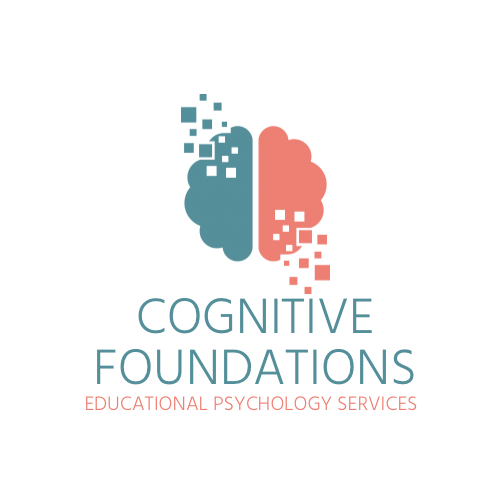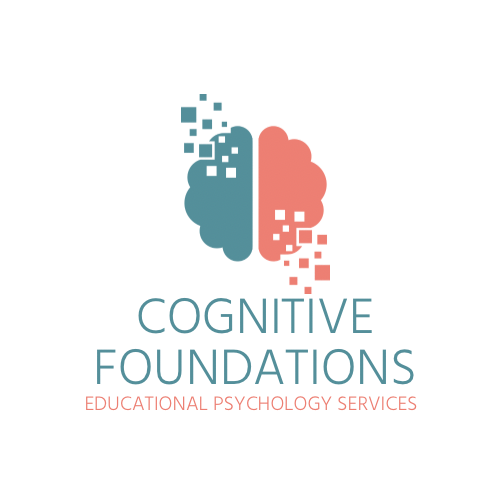Frequently Asked Questions About Assessments
What are the purposes of the evaluation (for children and youth)?
As an educational psychologist in the Bay Area, Radha Richmond conducts psychoeducational, school neuropsychological, and educationally related mental health assessments to assist families and schools in determining whether a child has a learning disability, ADHD, autism spectrum disorder, social and/or emotional disability, or other condition that significantly impacts learning and school performance. This information can then be used to develop an individualized intervention plan that supports the child future successes in school. Some of the benefits of an assessments include:
Fair unbiased evaluation of an individual's learning and behavioral needs
Specific information regarding learning strengths and weaknesses
Provide a road map for treatment
Assistance for parents and schools in planning appropriate interventions support
Assist in determining eligibility for Individualized Education Program (IEP)
Assist in determining eligibility for Section 504 accommodations
Assist in determining eligibility for College Board (SAT) accommodations
What should I expect from this process?
The process begins with a free 20 minute telephone consultation during which your concerns and reasons for seeking evaluation will be discussed.
During this consultation, any questions that you may have will be answered and recommendations will be given that may, based on the information provided, include a formal evaluation.
Radha will work with you to determine an appropriate time line, schedule one or more testing sessions, and provide a cost estimate of her services. For psychoeducational/neuro-educational evaluations, testing sessions typically last 6 to 8 hours, scheduled over 2 to 4 sessions, and assessment results are completed roughly 2-3 weeks after testing is completed. This is just an estimate however, specifics will be provided during your consultation.
Parents/individuals will receive a comprehensive assessment report clearly explaining the assessment findings and recommendations. They are encouraged to read through the assessment report and take note of any questions they may have. There will then be a scheduled time to discuss the report findings with the parent(s)/individual to make sure that the report accurately reflects their son or daughter or the individual (if it is an adult client), answer any questions, and provide guidance in terms of appropriate next steps.
What does the assessment include?
The assessment may include the following:
Testing (e.g. cognitive, memory, language, psychological processing, sensory-motor, academic, social/emotional, attention, and executive functioning)
Clinical interviews and observations
Review of educational and other pertinent records
Psychoeducational and Neuro-Educational Evaluations may assess the client’s development in the following areas:
Sensory-motor processes
Processing Speed
Attention Regulation
Working Memory
Auditory Processing
Language
Visual-Spatial Processing
Memory Functions
Reasoning
General Intelligence
Social, Emotional, and Behavioral Functioning
Social Communication and Flexibility (e.g., Autism Spectrum Disorders)
Academic Skills (e.g. reading, writing, mathematics, spelling)
After a thorough assessment of the student's strengths and areas of need, a verbal explanation and written report of the assessment findings will be provided.
The written report will include:
Background information
Clinical observations
Diagnostic test scores with analysis and educational implications
Identification of any DSM-IV or Special Education disabilities revealed through the assessment process
A list of treatment recommendations, including suggestions for educational planning and remediation strategies
How long do assessments take?
The duration of the assessment period is dependent upon the age and ability level of the client, the areas that need to be assessed, and the availability of the client. Typically, testing is conducted over two to four sessions, ranging from 2-3 hours each session. All clients receive an initial consultation, where intake information will be gathered and used to generate an appropriate assessment plan that will meet your needs.
What are the ages/grades of the clients you see?
Ages: 3 years old to adult, provided the adult is enrolled in or wanting to enroll in an educational program or wanting accommodations for entrance exams for educational programs.
Grades: Preschool through Graduate School.
How can the psychoeducational assessment results documented in your written report help me or my child?
Depending on what the assessment results show, psychoeducational reports are often used to:
Supply information that can be used by educational planning teams to identify necessary accommodations and services for the student; that is in accordance with the Individuals with Disabilities Education Act (IDEA) and Section 504.
Apply for accommodations on tests, such as extra time, small group testing, and use of a word processor. These include high school tests (AP), college entrance exams (SAT, ACT, CLEP) and graduate school exams (GRE, MCAT, GMAT, LSAT, etc.).
Show evidence that the student is gifted so that he/she can apply for particular magnet schools and Gifted and Talented programs.
Serve as an independent educational evaluation (IEE) to help mediate differences between school district and parents.
Identify learning strengths and challenges, in order to utilize instructional modalities that maximize learning strengths and minimize learning challenges.
Assist service providers to develop effective remediation programs targeted to meet the needs of the student’s individual cognitive profile.
How much does an evaluation cost?
The cost of evaluations varies depending on the number and type of tools and techniques. However, specific costs will be discussed during a free initial consultation and agreed upon prior to the initiation of services.
We are confident that you will find the cost of the services as a Bay Area educational psychologist to be extremely competitive with others in the field. Flexible payment plans are available and Visa, Mastercard, American Express, and Discover are accepted.
In addition, clients with Flexible Medical Spending Plans should investigate reimbursement as they may be able to recover the cost of assessment and/or intervention service. We are happy to provide a superbly to receive reimbursement from your medical provider (if applicable). Most medical providers do not cover learning disability evaluations unfortunately, but docker evaluations for other areas. Check with your medical provider to be certain.
Also a limited number of clients may be eligible to receive reduced fees on a sliding scale if they meet the income eligibility guidelines.

